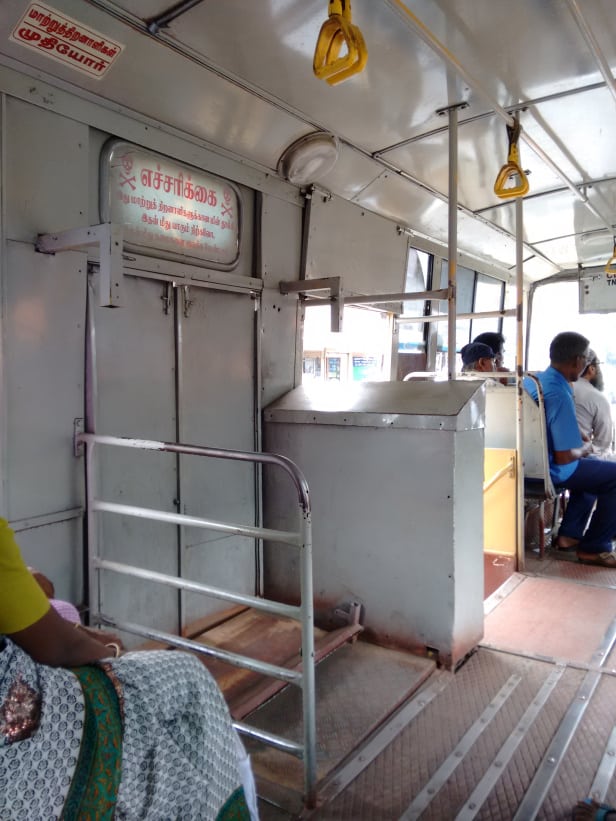What makes governmental arrogance worse – media ignorance or just plain indifference? I refer to the claim, made through a press statement, that new-generation MTC and other Tamil Nadu transport corporation buses will provide access to persons with disabilities.
Global good practice on universal access requires low floor buses, designated wheelchair spaces in the bus, and minimal effort for disabled users. This contraption from MTC is a reflogged idea from the time A P Shah was in the Madras High Court and ordered MTC to come up with some form of disability access. The truth is, they didn’t, and couldn’t care less.
The Tamil Nadu government shows scant regard for even judicial orders, and carries on with its contemptuous ways. The new red MTC buses, the latest to join the fleet, may have been built to the specifications of a diluted Bus Code, but these are no different from the earlier lorries-turned-buses that have been around since the 1960s. The ostensible reason is price. Low floor buses are expensive, officials claim. But this is not true, because Ashok Leyland offered a fully low-floor Janbus to MTC for a comparable price (Rs 55 lakh, see this report) but the corporation rejected it.
Only recently, in January this year, did a bench of the Madras High Court, comprising justices Vineet Kothari and Anita Sumanth haul up the Metropolitan Transport Corporation, Chennai and State Express Transport Corporation for selectively implementing its orders including those on disability access.
In 2009, there was a report of an MTC conductor on route 21G charging Rajiv Ranjan, who uses a wheelchair and was litigating on access for the disabled, an extra fare to carry his mobility device!

An older model: The interior of the lorry-turned-MTC-bus with the enclosure through which the disabled person on his wheel chair should be hoisted into the vehicle, about three feet high! Perhaps a global first. Predictably, hardly anyone used it.
Smita Sadasivan of the Disability Rights Alliance raises the issue of universal access for people with disability, reported by Newz Hook here. The lack of safety in the contraption that is mentioned by the Tamil Nadu Transport Secretary, J Radhakrishnan in a press release on August 9th, has been pointed out in the report. But governments never seem to learn, and IAS officers don’t use public transport.
The TN government obviously has some vested interest in buying lorry chasses and turning them into crude buses, now using private body builders. The government diverts public attention on the question of disability access by developing such outlandish designs that no one uses in practice. Today they are talking of buying a large number of electric buses, although no one knows if these are modern ones offering low floor access. The flurry of announcements on e-buses is here.
No newspaper has evaluated the applicability of the new law on disabilities of 2016 to bus acquisitions by Tamil Nadu transport corporations, perhaps other corporations too. I can understand that politicians have their axe to grind and block genuine progress on universalising access to public infrastructure. The disability rights community is also not able to make its demands vociferously. But what explains the media’s indifference or, even worse, collusion?
[The article first appeared in the author’s blog, Straphangers United, and has been republished here with permission.]
My idea about reconsider old madras tramways in chennai city and surban areas will more benefit public commuters, disabled persons, old seniority persons for saving expenses but CMRL waste money